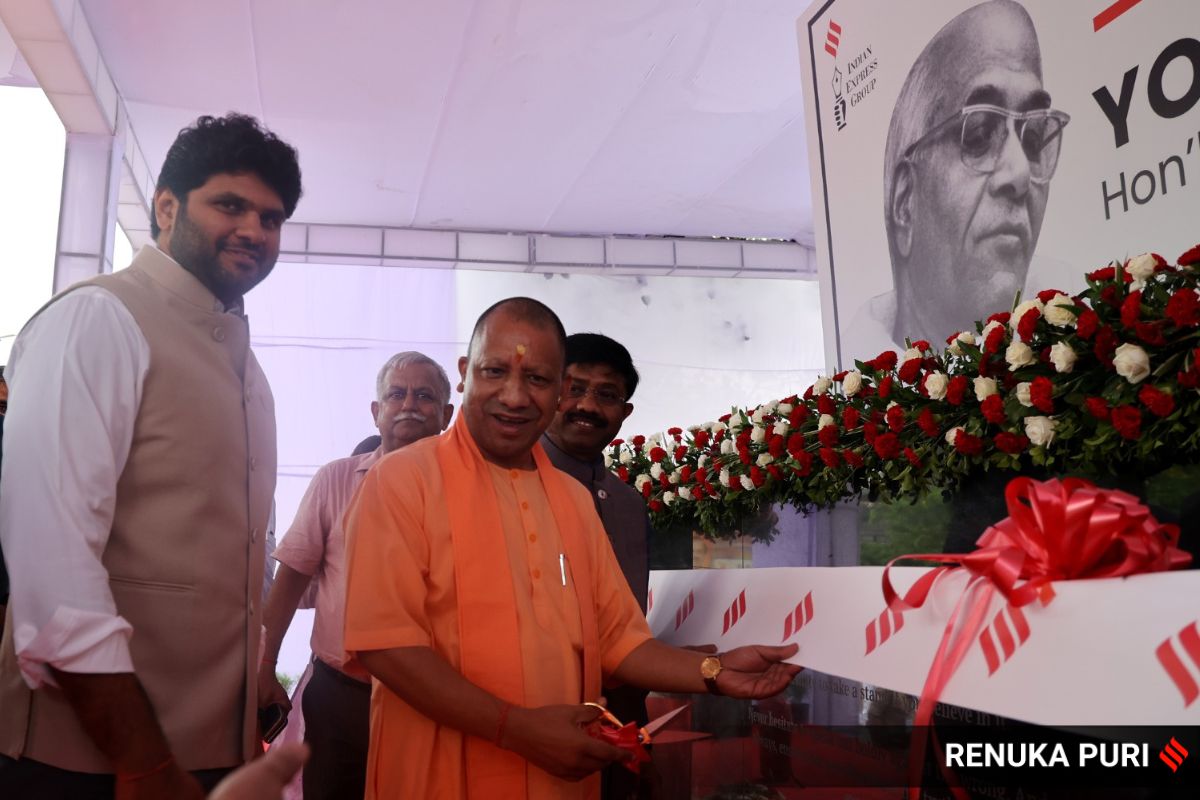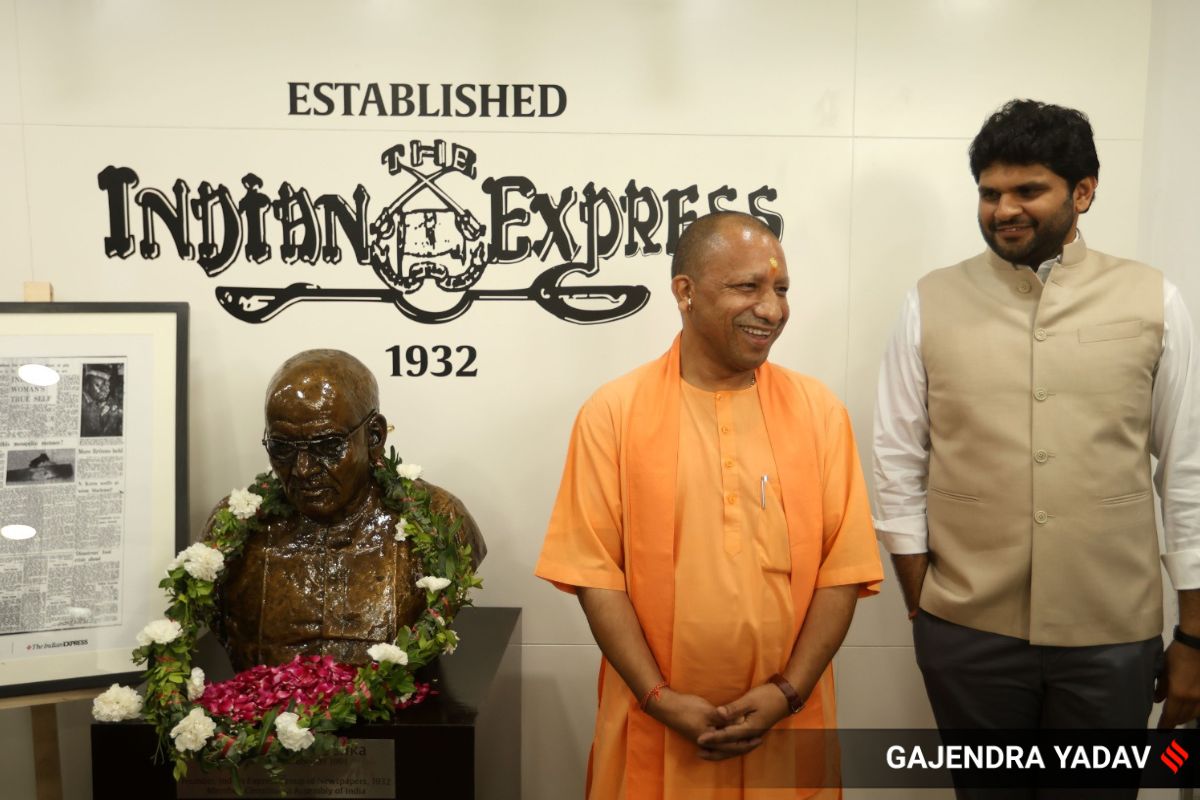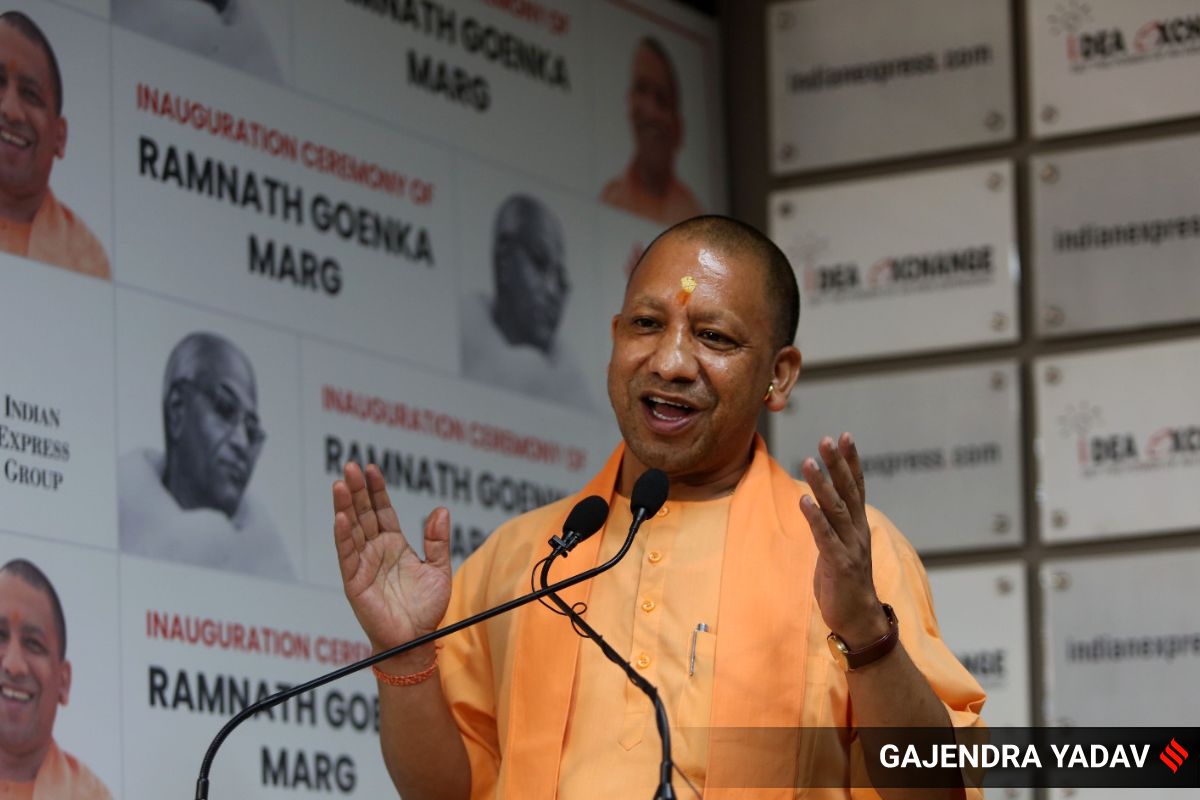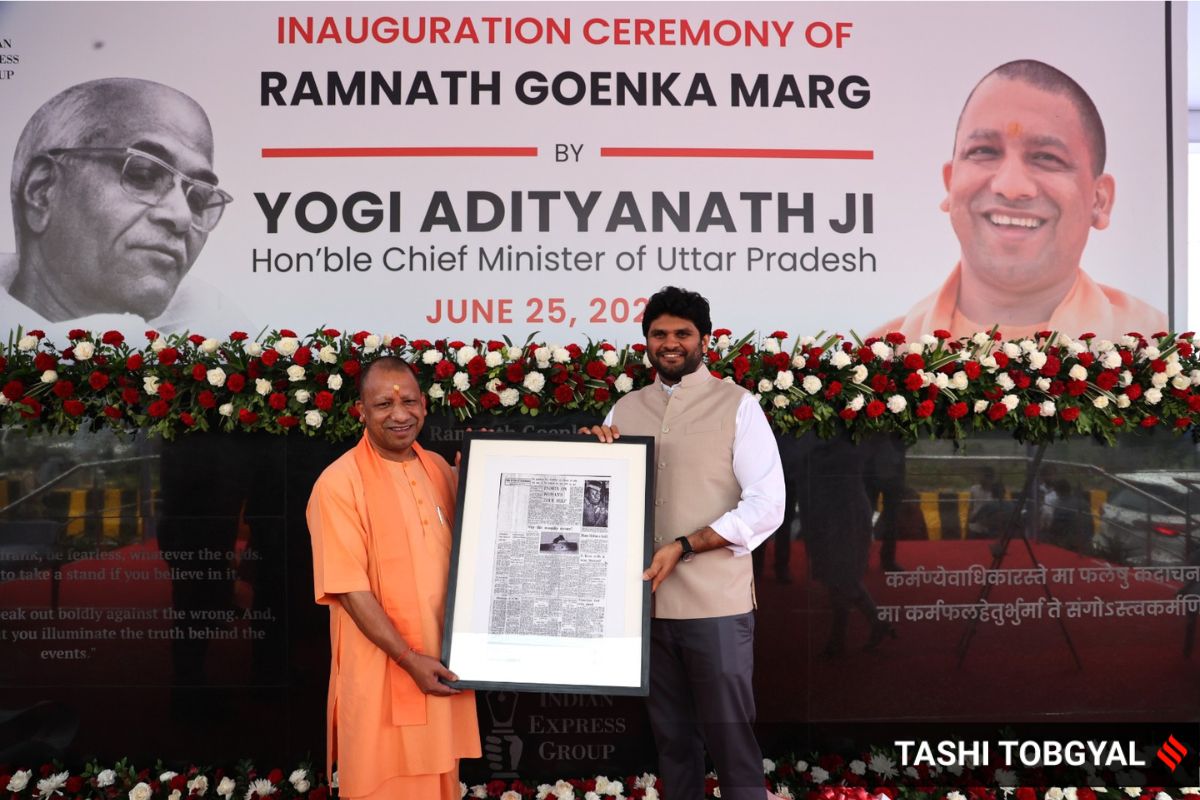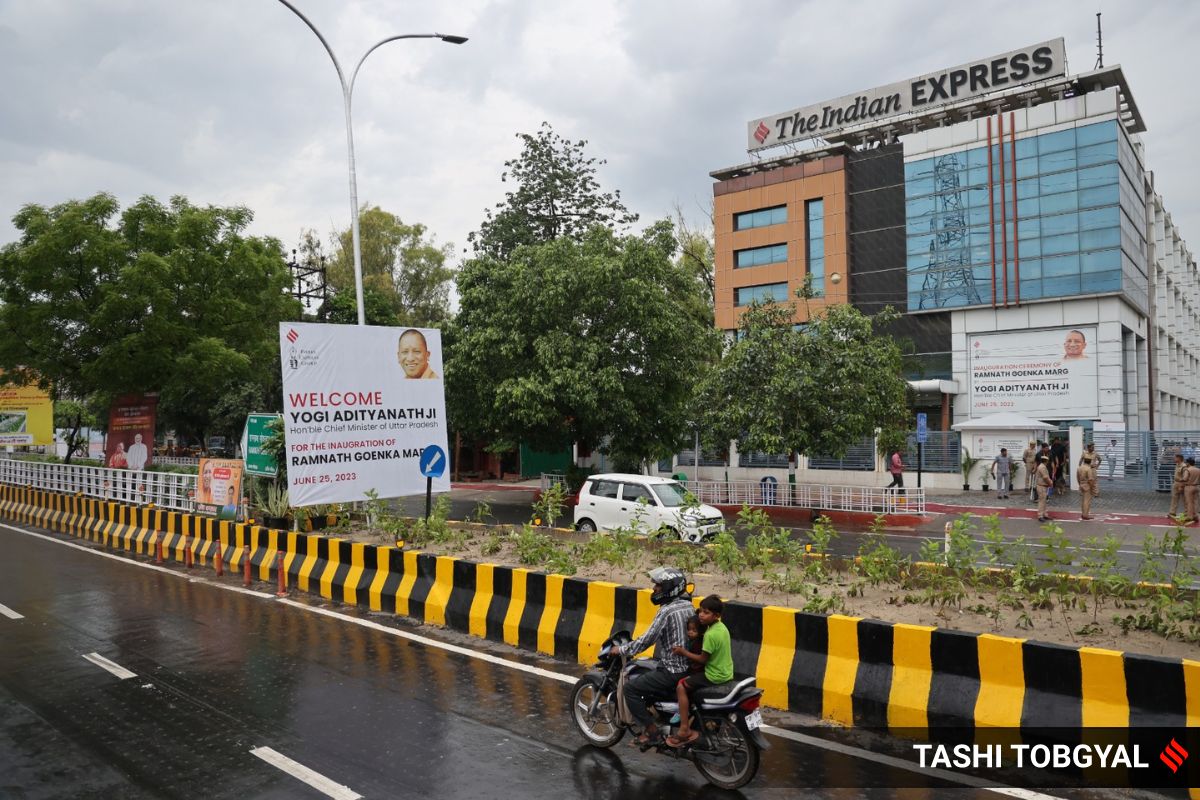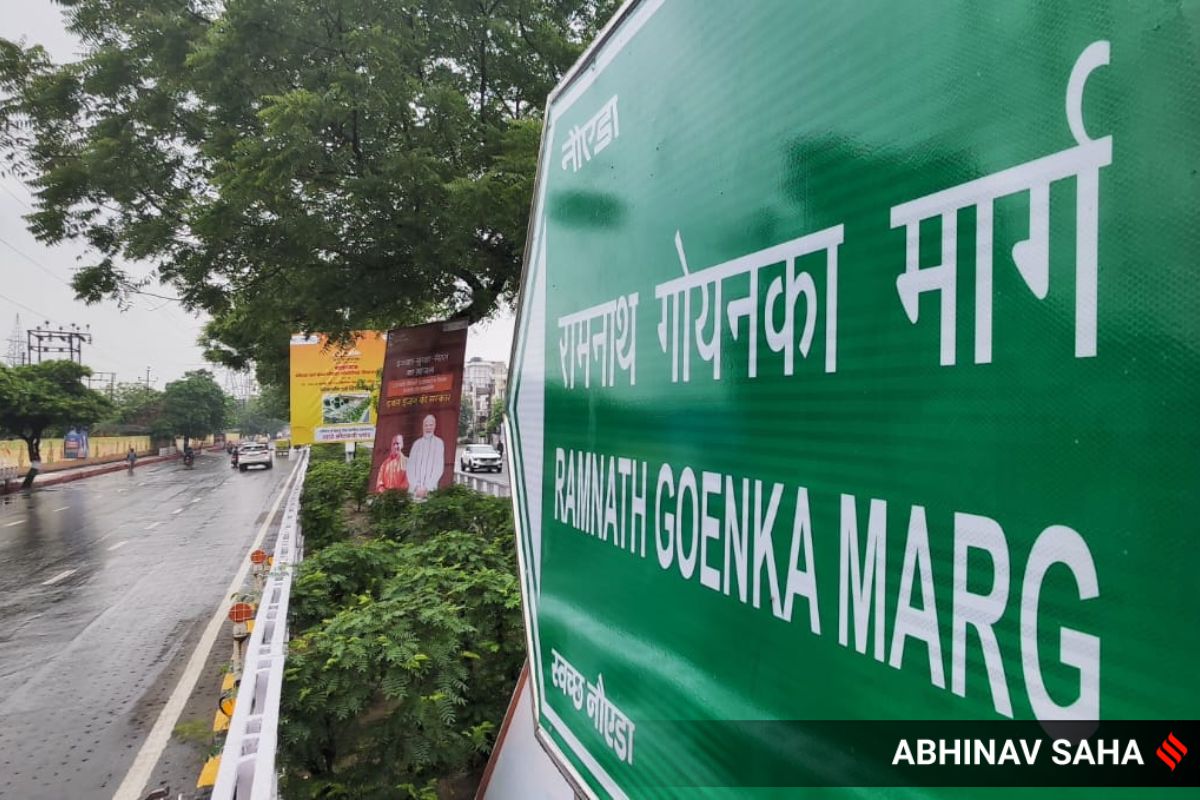Emergency black chapter in India’s history… media role key in a democracy: Yogi Adityanath
Uttar Pradesh Chief Minister Yogi Adityanath inaugurated the Noida road named after The Indian Express founder Ramnath Goenka.
 Uttar Pradesh Chief Minister Yogi Adityanath inaugurated the Ramnath Goenka Marg on Sunday. (Express Photo by Renuka Puri)
Uttar Pradesh Chief Minister Yogi Adityanath inaugurated the Ramnath Goenka Marg on Sunday. (Express Photo by Renuka Puri)
Underlining that an independent media is the “fourth pillar” of a democracy, Uttar Pradesh Chief Minister Yogi Adityanath on Sunday said he was “committed to assuring” that his government would engage with the media keeping this crucial “role” in mind.
Inaugurating the Ramnath Goenka Marg, a 2.2-km road stretch in Noida Sector 10 – where the office of The Indian Express is located – named after its founder, the Chief Minister said this was a significant day in more ways than one given that Emergency was declared on June 25 in 1975 to “strangle democracy”.
He highlighted the role Ramnath Goenka played in opposing Emergency, a “black chapter” in the history of the country, to protect free speech and a free press.
“The day is significant for me from an emotional point of view as well as from the point of safeguarding democracy. I do not think this is a mere coincidence. It is divine inspiration that the memorial is being named after Ramnath Goenka ji on June 25… He was the man who made the most significant contribution to not only ensuring freedom of the press but also to safeguard democracy, which was under attack 48 years ago.”
He added: “It is a matter of pride for me that I got the opportunity to inaugurate this road after Ramnath Goenkaji in what is known as the financial capital of Uttar Pradesh, Noida. I pay tribute to Ramnath Goenkaji and all the soldiers of democracy who sacrificed their lives to protect it.”
 CM Yogi Adityanath with the Executive Director of the Indian Express group Anant Goenka on Sunday. (Express Photo)
CM Yogi Adityanath with the Executive Director of the Indian Express group Anant Goenka on Sunday. (Express Photo)
“People of Uttar Pradesh had strongly opposed the conspiracy to strangle democracy. June 25, 1975, is known as a black chapter in Indian democracy. But India has seen the struggles and sacrifices of the people who staked everything they had to protect democracy and media freedom.”
Describing Goenka as the “dhruv tara” (pole star) of the media, the Chief Minister said, “Whenever we speak of democracy and media freedom, his name will always be taken with respect and reverence.”
Drawing “inspiration from Bapu” (Mahatma Gandhi), Yogi Adityanath recalled, Ramnath Goenka established The Indian Express in 1932. “Coming from a remote village in Bihar, Ramnath Goenka ji not only played a frontal role during the freedom movement, but also launched The Indian Express to give voice to the people of the country. He spoke for press freedom, contested elections and amplified the voice of the people in Parliament,” he said.
Ramnath Goenka’s legacy touched others, too, said the CM, flagging the significance of the Gandhi Peace Prize to the Gorakhpur-based Gita Press.
“Gita Press was started by the late Jay Dayal Goyandka with some of his supporters in 1923 in Gorakhpur. It popularised the Gita and Vedic literature through its magazine Kalyan and editorial programmes to guide people. Its first editor was the late ‘Bhai ji’ Hanuman Prasad Poddar whose relationship with the Goenka family is well-known,” he said.
The CM was speaking shortly after the inauguration ceremony where he unveiled a granite plaque showcasing Ramnath Goenka’s thoughts on the free press.
Welcoming him, Anant Goenka, Executive Director, The Indian Express, said: “The inauguration is a celebration and vindication of the fact that Ramnath ji’s principles still endure. Your decision to so enthusiastically endorse this moment, in spite of the fact that you were only a child when the Emergency was declared, is yet another testament that 32 years after Ramnath ji has passed, we remember him for fighting the good fight. It’s a testament to the fact that you didn’t have to live through the Emergency to realise what the nation went through, how important it was that we triumphed and that we had to triumph through that dark phase,” he said.
Anant Goenka said there is no contradiction between political popularity and safeguarding free speech and a free press.
“It is still just as dear to our citizens as it was 48 years ago. It is a testament that we all working together, whatever our politics is, will ensure that we will never again have an Emergency,” he said.
Anant Goenka thanked the Chief Minister and the Noida administration on his and his father, Express Group chairman Viveck Goenka’s behalf.
He recalled how, as a 10-year-old, he watched, with a sense of awe and pride, along with his father, the inauguration of another Ramnath Goenka Marg in Mumbai in the presence of the President of India.
Born in Darbhanga in 1904, Ramnath Goenka went to Chennai to learn the newspaper business following which The Indian Express was launched in 1932.
He ensured that it became a newspaper which was fearless, credible and fiercely independent — living up to its tagline ‘Journalism of Courage’.
He became the emblem of the free press when he resisted the suspension of basic rights during the Emergency between 1975 and 1977. His decision to publish a blank editorial rather than a censored one became a powerful reminder to the then Indira Gandhi government that The Indian Express would remain committed to the citizens’ right to know, whatever the consequences.
In 1988, he took the lead in opposing the Defamation Bill brought by the Rajiv Gandhi government to curb freedom of the press — a proposed law that was later withdrawn.
The inauguration ceremony also featured a special display showcasing the page dated June 28, 1975, which ran the blank editorial.
Also present at the ceremony were Nand Gopal Gupta ‘Nandi’, Uttar Pradesh Minister for Industrial Development, Export Promotion, NRI and Investment Promotion; Awanish K Awasthi, Advisor to the UP Chief Minister; and senior officers of the UP Police and the Noida administration.


